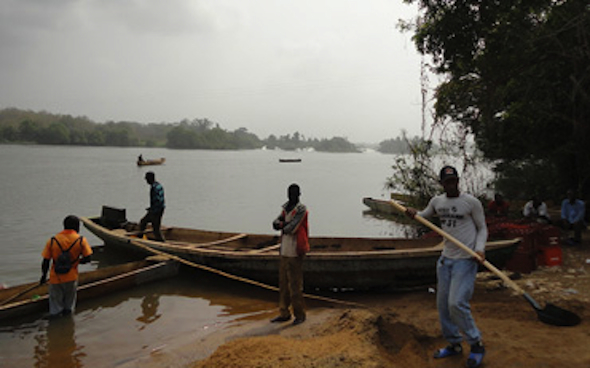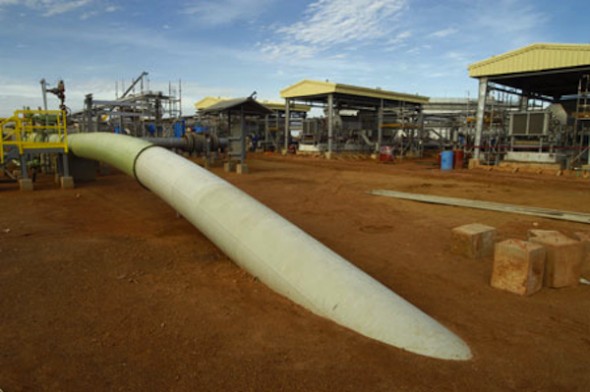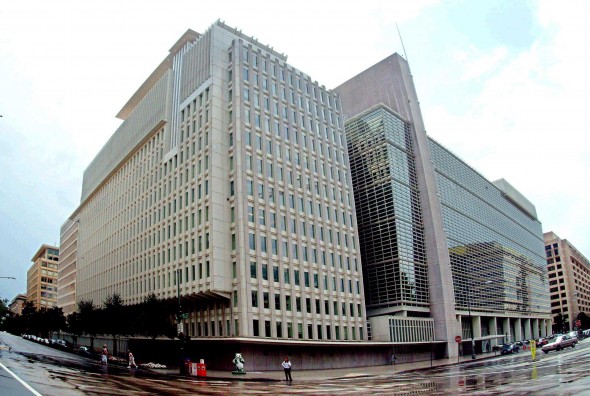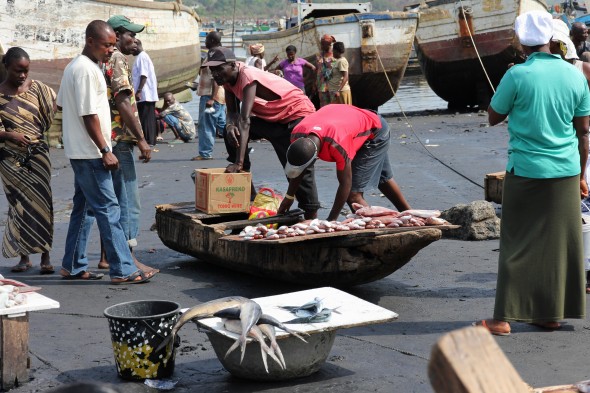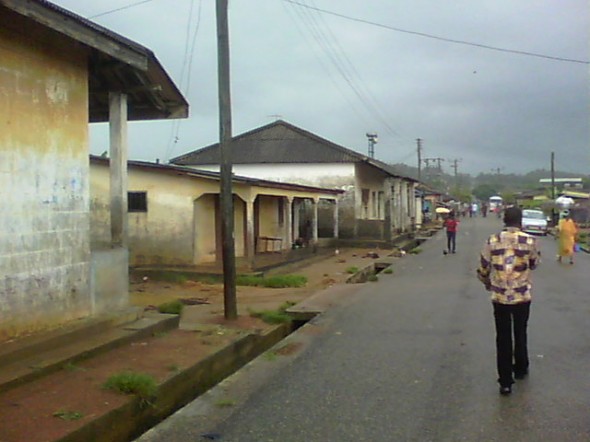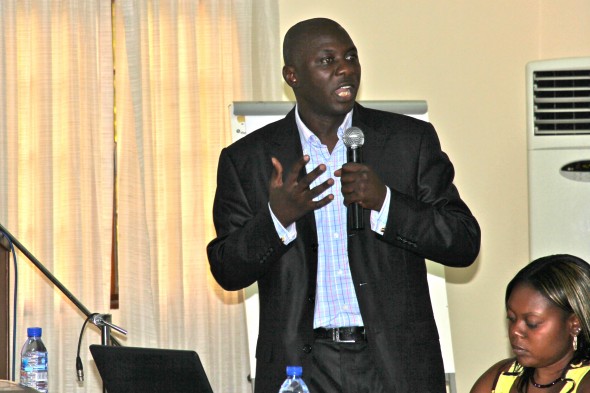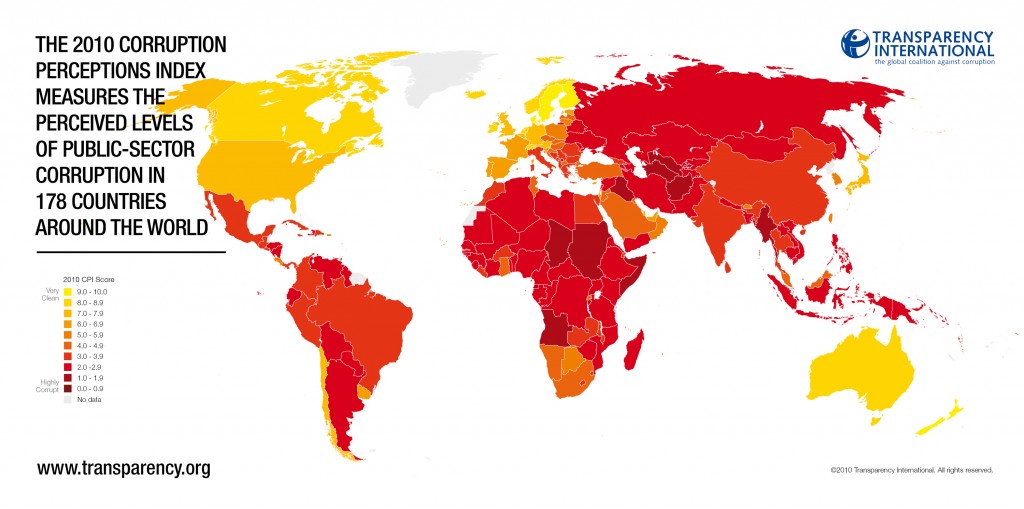Chad’s oil: 10 year anniversary, nothing much to celebrate
It was on October 10th 2003 that Exxon Mobil and its partners officially inaugurated the Chad-Cameroon Oil Project. The press release marking the event was positively jubilant:
Addressing inauguration attendees, Morris Foster, president of ExxonMobil Development Company, said, “It is with great pride that I am here today to celebrate this tremendous accomplishment with everyone who has been involved in the Project. I want to personally thank President Deby and President Biya for their support along with important contributions of our co-venturers, Petronas and ChevronTexaco, and the World Bank Group for their commitment to this Project.
“Today we celebrate not only what was achieved during the construction but Esso, as operator, also celebrates the manner in which it has been accomplished,” Mr. Foster added. “We maintained our long-term focus on this project over 27 years of effort and changes in the consortium, increased the known oil reserves to commercial levels and helped turn a vision in 1976 into a reality. We believe this project will help prepare a brighter future for the citizens of Chad and Cameroon, and I am proud we are part of it.”
World Bank approves loan for Cameroon’s Lom Pangar dam
Once again the World Bank has signed on to a high-risk project with questionable poverty-reduction potential.
Of course, reading the press release from the World Bank, you would never guess that this project could be anything less than wonderful:
WASHINGTON, March 27, 2012 – The World Bank’s Board of Executive Directors today approved US$132 million in zero-interest financing for Cameroon’s Lom Pangar Hydropower Project (LPHP), to support the country’s economic development and significantly improve the supply of electricity to homes and businesses across Cameroon.
Pipeline oversight: Are independent monitoring panels effective, truly independent?
Over the past few weeks I’ve been scrutinizing documents on the safety and oversight of the Chad-Cameroon pipeline. As I wrote in an initial blog post, the ruptured ExxonMobil pipeline and subsequent oil spill in the Yellowstone River in Montana got me thinking about similarities with the ExxonMobil pipeline that crosses no fewer than 17 major rivers in Cameroon. I then wrote a follow-up post on pipeline oversight (or lack of).
So I was thrilled when I found out that Oxfam America was preparing a new report on the monitoring of controversial oil and gas projects featuring the Chad-Cameroon pipeline as one of its case studies. The report, Watching the Watchdogs, was launched yesterday in Washington, D.C. Among the speakers at yesterday’s panel were Jacques Gérin and Nadji Nelambaye who were both involved with monitoring the Chad-Cameroon pipeline.
World Bank Unveils New Transparency Initiative
News from the Task Force on Financial Integrity & Economic Development:
Last week, the World Bank unveiled a major initiative to make their funding more transparent. Through the new World Bank Finances portal, vast amounts of information about the inner workings of the Bank’s finances are now made easily accessible. This includes information about specific funds that members are supporting, and the disbursement and repayment status of thousands of projects around the world.
Welcome news for Ghana’s fisheries
The World Bank has announced a significant funding package (US$ 53.3. million) intended to support Ghana’s fisheries. Among other things, the funding will support efforts to reduce illegal fishing off the coast of Ghana and to improve sustainable management of the country’s fisheries. This is important news for Ghana’s fishing communities.
Oil and Beyond: Ghana looks to retool its economy
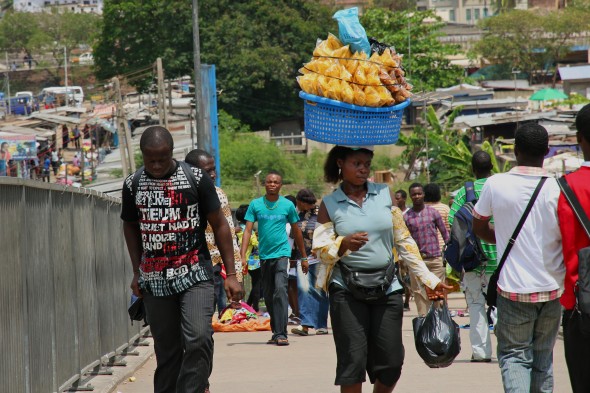
Accra. Will Ghana's oil wealth translate into improved lives for Ghanaians? Photo by Christiane Badgley
Now that Ghana has become a middle-income country, the West African nation is taking stock of the many challenges it faces, including uneven development. Authorities are consulting with experts at home and abroad on how to ensure that oil revenues benefit all Ghanaians in a sustainable manner.
Jubilee’s oil…Bonyere’s gas: what’s going on?
Today I’m posting an article by Stephen Yeboah on the proposed Bonyere gas project. Yeboah, a Ghanaian development practitioner who focuses on the extractive industries, recently participated in a training program on oil and gas reporting funded by Revenue Watch Institute, Thomson Reuters Foundation and the International Institute of ICT Journalism (Penplusbytes).
First some background:
The Jubilee oil development project includes plans to pipe the gas released by the drilling to shore where it will be processed to generate electricity and eventually lead to further industrial development.
Report card: Ghana oil gets a “C”
The report card is out and Ghana’s overall grade is a “C.”
The government (executive branch), the parliament, the donor partners, the oil and gas companies and civil society all received average grades of “C” (fair). As Mohammed Amin Adam, National Coordinator of the Civil Society Platform, explained, the objectives of the readiness report and the accompanying report card are to acknowledge progress made to date and to encourage renewed efforts moving forward. That’s why, according to Amin, the grading system was fairly easy.
Corruption Index
Transparency International has released its 2010 Corruptions Index. Chad ranks among the ten most corrupt countries in the world. Cameroon has made some progress — just a few years ago the country was at the bottom of the ratings — but is still mired in corruption.
Corruption was a problem in both Chad and Cameroon before Exxon began drilling. Organizations opposed to the World Bank’s involvement in the project warned that rampant corruption would certainly impact any poverty alleviation plans. They were right, but the World Bank knew this, too…which brings us back to the Bank’s crackdown on corruption. You can stop doing business with companies that bribe officials, but as long as those officials operate in a culture of impunity you’re not reducing corruption.
Licence to probe: World Bank trains its sights on corruption crackdown
This is significant news from the World Bank so I’m posting the entire Guardian article below. I tend to agree with the author’s assessment: this is an important step in the right direction, but there’s a long, long way to go. I’m looking into non-compliance on aspects of the loan agreements with Chad and Cameroon that have not been effectively enforced. Avoiding obligations—with no apparent consequences—is not corruption. But it certainly doesn’t help advance the rule of law. And what better for corruption than a culture of impunity? I’ll be posting more about this soon.
Article by Larry Elliott, guardian.co.uk, October 8 2010

The World Bank’s latest anti-corruption initiative may sound a bit Bond, but it shows issues like fraud and bribery are being taken seriously. Photograph: Reuters
It will have 250 staff operating out of 150 countries and sounds like Ian Fleming dreamed it up. Yet the International Corruption Hunters Network (ICHN) is not something out of a James Bond novel, but the World Bank‘s latest initiative for stamping out bribery, fraud and the pilfering of money designed to alleviate poverty.
The idea is a good one. There are countless individual agencies around the world dedicated to stamping out financial crime: pooling their expertise should make it more difficult for the venal to get away with it. And not before time, since the taxpayers who last year provided the $70bn-plus spent by the World Bank in the field need to know that their money is not finding its way into numbered Swiss bank accounts or swelling the profits of unscrupulous companies.
Oil…A Pipeline to Prosperity?
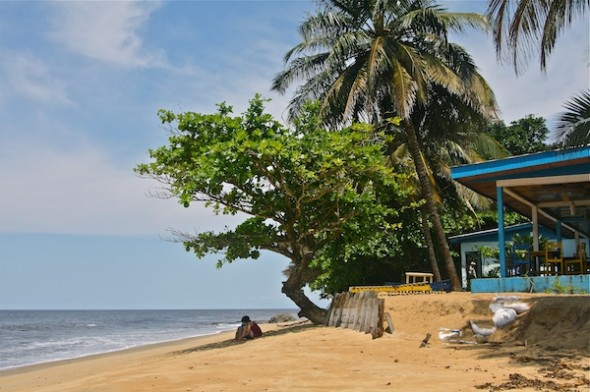
Tourists at Bume Beach, opposite the pipeline's marine loading terminal. Photo by Christiane Badgley
I have produced a short film for PBS/Frontline World to mark the 10th anniversary of World Bank engagement in the Chad-Cameroon Oil Development and Pipeline Project. Cameroon: Pipeline to Prosperity? revisits the story of the “model” oil for development project. Ten years ago the oil companies and the World Bank promised that this project would break the resource curse and prove to the world that oil could be a force for good…
What has happened? Watch the film to see how Chad’s oil has impacted life along the pipeline in Cameroon.
This work was produced with support from Frontline World, The Pulitzer Center on Crisis Reporting and The Center for Investigative Reporting.
Cameroon: Pipeline to Prosperity? is the first installment in my ongoing exploration of Africa’s booming oil industry, Pipe(line) Dreams. You can read more about the project on the website.
Please support my work on this project by viewing the film and leaving your feedback. It is crucial to show funders that this work matters!
The U.S. now imports more oil from Africa than from the Middle East, with oil accounting for more than 80% of all African imports into the country. African is soon expected to account for close to one quarter of U.S. oil consumption.
With Africa increasingly seen as the next frontier of oil exploration, there is no shortage of oil companies lining up for financing from the World Bank Group. Oil drilling has begun in Ghana with support from the World Bank Group; loans may soon be approved for Uganda. New oil has been found in Chad, Cameroon, Nigeria, Angola — even Sierra Leone. The list goes on, with government and corporate officials in each country promising to make oil work for the people.
But in countries lacking accountability, with weak legal systems and lax or nonexistent environmental regulation and enforcement, is oil really a viable development option? And is there a valid reason that public funds subsidize these projects? Both the U.S. and China depend heavily on African oil, yet we rarely see anything about how that oil dramatically transforms African communities, economies and environments. Pipe(line) Dreams, a timely and globally relevant story, will bring much needed attention to the rapidly expanding oil industry in Africa.
News from Washington
I’ve recently returned from Washington, D.C., where I was able to interview World Bank and other officials about the Chad-Cameroon Oil Development Project.
Very interesting…
I’m now editing some video sequences and will post material soon.
Paradise and the Pipeline
Kribi. It could be paradise. The small beach town on Cameroon’s Atlantic coast is one of the country’s prime tourist attractions. The dense rainforest stretches almost to the water’s edge; a strip of white sand beach is all that separates the greens of the forest from the turquoise waters. Just south of town the famous Lobé waterfalls tumble over black volcanic rocks directly into the ocean. Market women sell and prepare fish right off the boats at the town’s small port.
The first time I visited Kribi was in December, 1994, and the beauty of the place was stunning. Of course, most of the town was rundown and ramshackle. Electricity ran intermittently and the water was not fit to drink. Unfortunately this was (and is) the story of much of Cameroon. But Kribi managed somehow to have a certain charm and people spoke proudly of their little corner of paradise.


